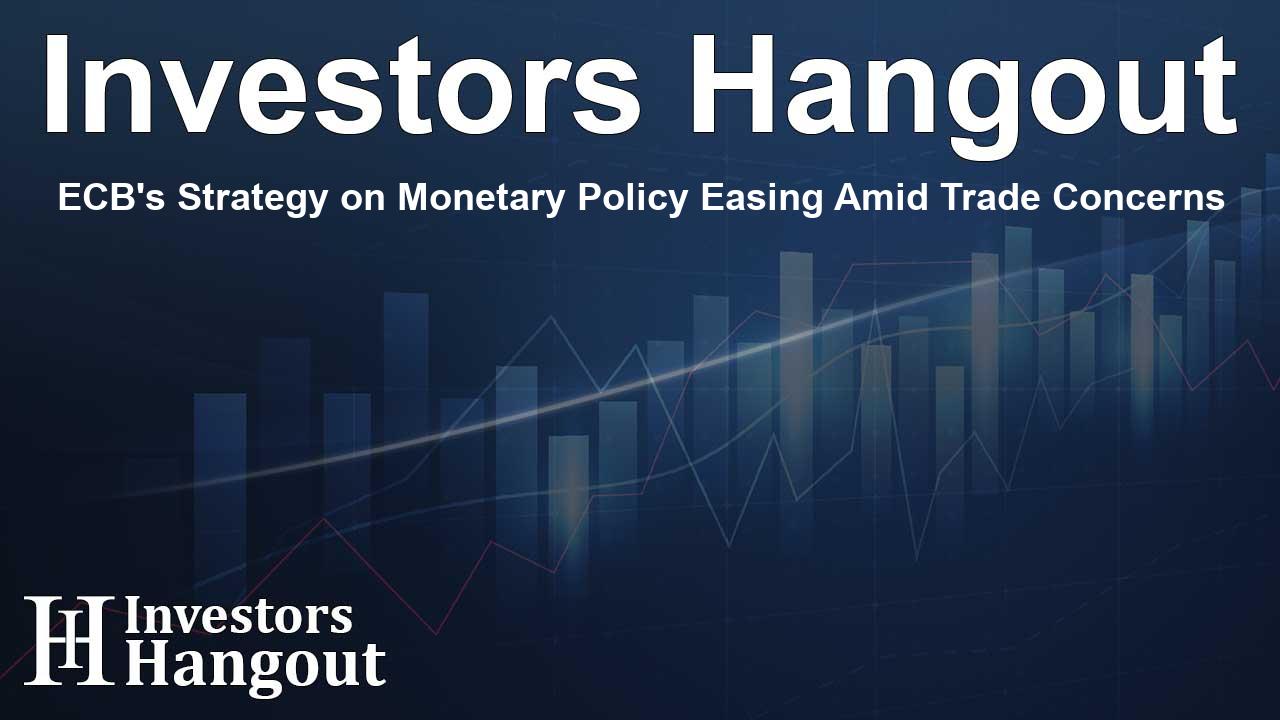ECB's Strategy on Monetary Policy Easing Amid Trade Concerns

ECB's Commitment to Monetary Easing
In recent statements, Yannis Stournaras, a policymaker at the European Central Bank (ECB), underscored the importance of maintaining a path of monetary easing. He pointed out that a series of rate cuts may be necessary as the euro zone faces challenges related to protectionist measures from the United States.
Impact of US Protectionism on Euro Zone Growth
Stournaras highlighted that potential new protectionist policies adopted by the US could pose risks to the already moderate growth of the euro zone. The increasing pressures on global trade could significantly influence economic activity within the region, possibly leading to inflation rates that fall below the ECB's target.
Concerns Regarding Inflation
As the euro zone's growth remains fragile, the threat of below-target inflation becomes a central issue. Policymakers are worried that if growth slows down due to external factors, inflation levels could also decline, creating a challenging environment for the euro area's economic recovery.
Call for Gradual Rate Cuts
Addressing the need for rate adjustments, Stournaras advocated for a cautious approach. He suggested that any interest rate cuts should be gradual and contingent upon the evidential economic conditions that persist in the euro zone. This careful strategy aims to ensure stability while responding to evolving economic indicators.
Monitoring Economic Indicators
The emphasis on using clear evidence as a basis for rate adjustments reflects the ECB's desire to avoid overreacting to transient economic shocks. Ongoing monitoring of both internal and external economic conditions remains pivotal in informing the bank's policy decisions moving forward.
Conclusion
As the ECB navigates through this economic landscape, the insights from policymakers like Stournaras will play a critical role in shaping monetary policy. Continuing to foster a proactive approach to monetary easing may provide the euro zone with the buffer it needs against potential economic setbacks arising from global trade tensions.
Frequently Asked Questions
What is the main concern regarding US protectionism?
US protectionism poses risks to euro zone growth and could lead to lower inflation rates.
Why does Yannis Stournaras advocate for monetary easing?
Stournaras believes that monetary easing will help counteract potential economic downturns due to external pressures.
What approach does the ECB plan to take for interest rate cuts?
The ECB plans to implement gradual interest rate cuts based on clear economic evidence.
How could US policies impact the euro zone?
Potentially restrictive US policies could hinder trade and economic growth within the euro zone.
What factors will influence ECB's monetary policy decisions?
Economic indicators such as trade dynamics and inflation rates will significantly inform the ECB's decisions.
About The Author
Contact Lucas Young privately here. Or send an email with ATTN: Lucas Young as the subject to contact@investorshangout.com.
About Investors Hangout
Investors Hangout is a leading online stock forum for financial discussion and learning, offering a wide range of free tools and resources. It draws in traders of all levels, who exchange market knowledge, investigate trading tactics, and keep an eye on industry developments in real time. Featuring financial articles, stock message boards, quotes, charts, company profiles, and live news updates. Through cooperative learning and a wealth of informational resources, it helps users from novices creating their first portfolios to experts honing their techniques. Join Investors Hangout today: https://investorshangout.com/
The content of this article is based on factual, publicly available information and does not represent legal, financial, or investment advice. Investors Hangout does not offer financial advice, and the author is not a licensed financial advisor. Consult a qualified advisor before making any financial or investment decisions based on this article. This article should not be considered advice to purchase, sell, or hold any securities or other investments. If any of the material provided here is inaccurate, please contact us for corrections.
